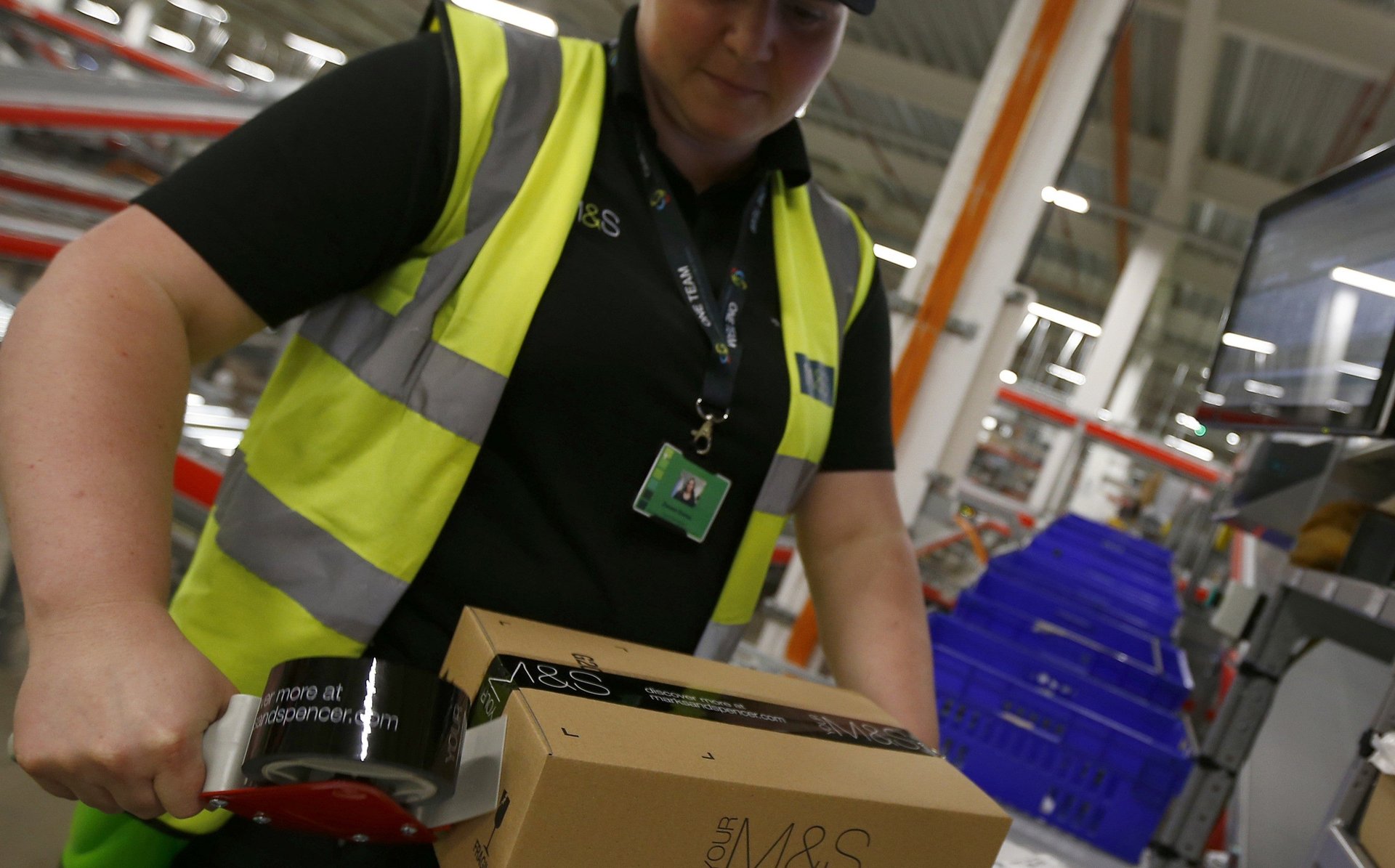The entire EU will have a single website for resolving irritating online shopping disputes
Disgruntled online shoppers in Europe can now have their complaints heard through a new website run by the European Union, regardless of where they bought their goods. It’s the first such platform devised for a continent.


Disgruntled online shoppers in Europe can now have their complaints heard through a new website run by the European Union, regardless of where they bought their goods. It’s the first such platform devised for a continent.
The Online Dispute Resolution (ODR) platform, launched to consumers on Feb. 15, is designed to be a one-stop shop to help consumers find a solution to their purchasing complaints while avoiding the courts. It gets a complaint in front of a trader quickly, then lets both buyer and seller agree on whether to enlist a third-party ombudsman or mediator to help them find a solution. The site covers goods acquired in 17 of the 28 EU member states, with the goal that it will cover the entire body over time.
The point of the complaints hub is to boost cross-border shopping and inch the European Commission forward in its goal of creating a “Digital Single Market,” a streamlined set of rules governing commerce across the EU which could generate €415 billion annually for member states. Much of that work involves standardizing regulatory mechanisms, and increasing customer trust in e-commerce.
According to the European Commission, 60% of European traders don’t sell online to other countries because they don’t know how to deal with a cross-border complaint. Meanwhile, a quarter of all European customers with problem buys, from faulty parts to fraudulent sales, say they didn’t complain because they thought it would take too long, or that they wouldn’t actually find a solution, the Commission found. “Having a digital means of redress is essential to having a single market,” Luke Scanlon, a technology lawyer at the international firm Pinsent Masons told Quartz.
The EU platform is an outlier in the global scheme of things, says Pablo Cortes, a senior lecturer at the University of Leicester who specializes in online dispute resolution (ODR). First, the hub makes dispute processes available online, compared to most countries where customers are often expected to make telephone calls or in-person visits to get their complaint dealt with by a mediator.
The EU platform also works on a continental scale, and it’s run by a public body, the European Commission. This sets it apart from typical ODR systems, many of which work within large private platforms, such as the internal complaints process for eBay auctions or on Alibaba’s Taobao shopping platform. Ebay settles 60 million disputes annually on its internal system, for example. “There is nothing equivalent to this European platform anywhere in the world,” Cortes told Quartz.
In the US, for example, consumers commonly rely on credit chargebacks to obtain a refund. But that only works in a narrow band of cases where the buyer can show the seller had acted fraudulently. There are also arbitration schemes in the US–but they’re often used by companies against consumers for non-payment, for instance, Cortes told Quartz.
Cortes gave Quartz a personal example of how the EU’s new system works. He had an outstanding dispute with British Gas over a meter reading for several weeks. Upon calling the energy provider, he was flatly told that the reading was accurate, with no further explanation. Then he wrote a complaint on the new ODR platform. “Two days later, I got an email with a detailed explanation about the increased charge, which I accepted,” he said.
The EU’s complaints platform also has legislative teeth. The EU adopted laws around dispute resolution in 2013 that require traders to inform customers of alternative dispute resolution processes in every unresolved complaint. Online traders now have to prominently display a link to the complaints platform. An outcome has to be produced within 90 days. While penalties vary by country for non-compliance, Cortes said that a UK trader who didn’t link to the complaints hub could face up to two years’ jail–although he noted that traders were far more likely to get a warning letter instead.
But the ODR platform isn’t going to work like a magical helpline for online shopping just yet. For one thing, it’s not quite EU-wide. Key markets like Germany aren’t connected to it because the EU directive behind it hasn’t yet been translated into national law. The European Commission says it’s working with member states to get full coverage “as soon as possible.”
Another obvious weakness, says Cortes, is that traders aren’t compelled to work with mediators or ombudsmen–with the exception of some sectors, like financial services or utilities–which means they can receive a complaint but ignore it. That said, as “a new way of dealing with consumer rights and disputes, it’s a good starting point,” said Scanlon of Pinsent Masons. “At this stage, the European Commission is still interested in getting consumers and businesses to buy into the process.”